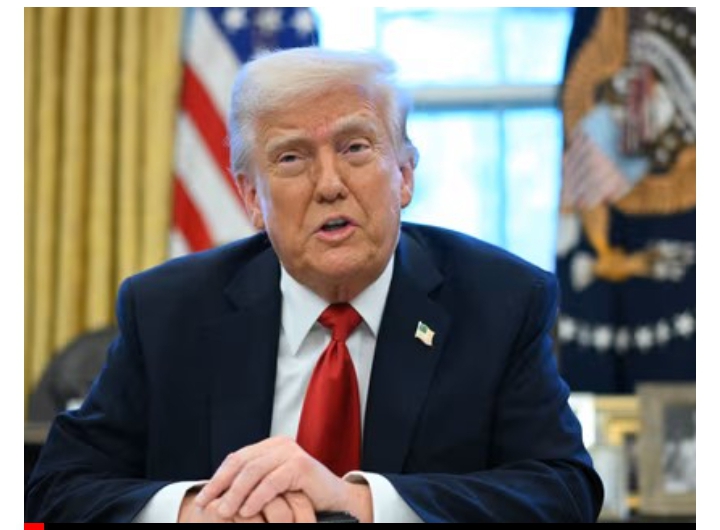The Federal Government has expressed concern over the impact of the newly imposed tariffs by U.S. President Donald Trump on Nigerian exports, warning that both oil and non-oil sectors could suffer significant setbacks. The tariffs, which are set to disrupt trade relations between Nigeria and the United States, could undermine the competitiveness of Nigerian products in the U.S. market.
In a statement sent to KIIN360, Dr. Jumoke Oduwole, the Minister of Industry, Trade, and Investment, acknowledged the potential adverse effects of these tariffs on Nigeria’s trade. The statement, signed personally by the minister, came three days after Trump’s controversial announcement.
Trump’s decision to impose tariffs as high as 50 percent on goods from countries seeking to sell products to the U.S. was met with widespread condemnation, particularly from the European Union and other exporting nations. Economists have warned that this policy could drive up prices for consumers, dampen manufacturing activities, hinder international trade, and reduce demand for Nigerian oil, one of its major exports to the U.S.
Dr. Oduwole noted that Nigeria’s exports to the United States have consistently ranged between $5 billion and $6 billion annually over the past two years. She highlighted that a significant portion of this trade consists of crude petroleum, mineral fuels, oils, and gas, which make up over 90 percent of Nigeria’s exports to the U.S. Other important exports include fertilizers and urea, accounting for 2–3 percent, and lead, representing around 1 percent of total exports.
She also pointed out that Nigeria exports smaller quantities of agricultural products, such as live plants, flour, and nuts, which make up less than 2 percent of total exports to the U.S. While oil has long been the dominant export to the U.S., non-oil products—many of which were previously exempted under the African Growth and Opportunity Act (AGOA)—now face potential disruptions due to the tariffs.
The minister further explained that the new 10 percent tariff on certain categories could negatively affect the competitiveness of Nigerian goods in the U.S. market. For businesses in the non-oil sector, especially those in emerging industries, this could result in price increases and reduced market access, thus destabilizing their operations. She added that small and medium-sized enterprises (SMEs) that had built their business models around AGOA exemptions would particularly face the brunt of rising costs and uncertain buyer commitments.
Dr. Oduwole assured that the Nigerian government remains committed to boosting the country’s non-oil exports. She emphasized the importance of strengthening quality assurance, control, and traceability in Nigerian exports to meet global standards, which would improve market acceptance in more international markets.
“This development strengthens Nigeria’s resolve to diversify its export base and enhance the competitiveness of non-oil products,” she concluded, noting that the government would take necessary steps to ensure Nigerian products meet global expectations and improve market access worldwide.








Leave feedback about this